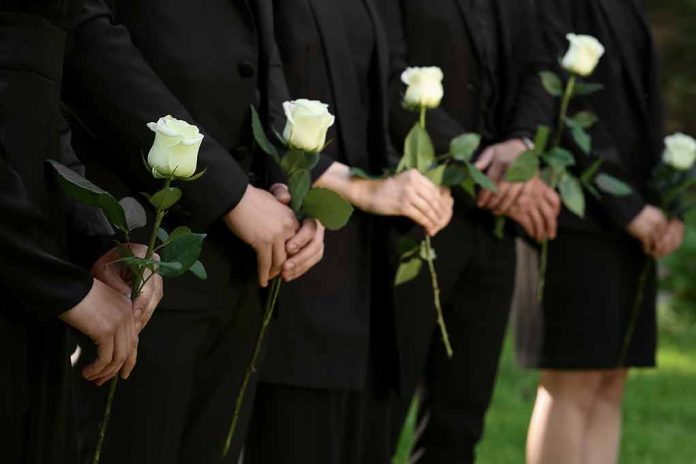
Former President Donald Trump’s campaign event at Gottlieb’s Deli in Brooklyn was abruptly canceled due to the unexpected passing of the deli’s beloved owner, leaving a community in mourning and highlighting Trump’s strong support among Hasidic Jews.
At a Glance
- Shulem Yosef Gottlieb, 75, owner of Gottlieb’s Deli, passed away hours before Trump’s scheduled visit
- The deli, a cherished institution in Hasidic Williamsburg, was founded by Gottlieb’s father, a Holocaust survivor
- Trump’s visit was highly anticipated by the Hasidic community, which strongly supports him
- The cancellation underscores Trump’s popularity among Williamsburg’s Hasidic Jews
- The community mourns the loss of Gottlieb, known for his generosity and charitable acts
A Beloved Community Figure Lost
The sudden passing of Shulem Yosef Gottlieb, the 75-year-old owner of Gottlieb’s Deli in Brooklyn, has sent shockwaves through the tight-knit Hasidic community of Williamsburg. Gottlieb, known for his generosity and dedication to his family’s business, died of a heart attack after being hospitalized with pneumonia. His death occurred just hours before a scheduled visit by former President Donald Trump, forcing the cancellation of the highly anticipated campaign event.
A Legacy of Tradition and Charity
Gottlieb’s Deli, founded in 1962 by Gottlieb’s father Shlomo Zelka, a Holocaust survivor, has long been a cornerstone of the Hasidic community in Williamsburg. The establishment is renowned for its adherence to strict Jewish dietary laws, making it one of the few “Glatt kosher” delis in the United States. Gottlieb continued his father’s legacy, not only in maintaining the deli’s high standards but also in his commitment to charitable acts.
“Let’s say someone came and told him their mother was sick, had to go to the hospital. He’d say, ‘How many portions do you need? Take it,'” Indig said. “Every Friday before closing he’d take all the leftovers and pack them up and send them to families.” https://nypost.com/2024/09/19/us-news/trump-appearance-at-nyc-kosher-deli-gottilebs-canceled-at-last-minute-after-owner-dies/
Trump’s Strong Support Among Hasidic Jews
The cancellation of Trump’s visit has highlighted the former president’s popularity within the Hasidic community of Williamsburg. The Satmar area, where Gottlieb’s Deli is located, showed strong support for Trump in the 2020 election. This support is attributed to Trump’s perceived affinity for Jewish issues, rather than Zionism, as the Satmar community is ideologically non-Zionist.
“The vibe here yesterday was extremely holiday-like, it was very festive,” said Frieda Vizel, a former member of the Satmar community who now leads tours of the neighborhood. “The idea of Trump visiting this community was very monumental.”
Community Mourns as Campaign Moves Forward
As the Hasidic community mourns the loss of Shulem Yosef Gottlieb, the Trump campaign must navigate the delicate balance of respecting the community’s grief while maintaining momentum. The visit to Gottlieb’s Deli was to be the first of three Jewish events for Trump on the same day, including speeches on antisemitism and at the Israeli American Council conference. While the campaign has not commented on rescheduling the visit, the strong support for Trump in the community suggests that future opportunities for engagement will likely arise.
As the community observes shiva, the traditional seven-day mourning period in the Jewish faith, Gottlieb’s Deli will remain closed until September 25th. This period of reflection serves as a reminder of the deep connections between local businesses, community leaders, and the broader political landscape. The unexpected turn of events at Gottlieb’s Deli underscores the unpredictable nature of campaign trails and the importance of community ties in American politics.






















